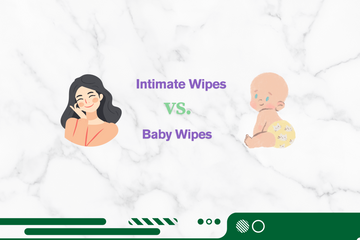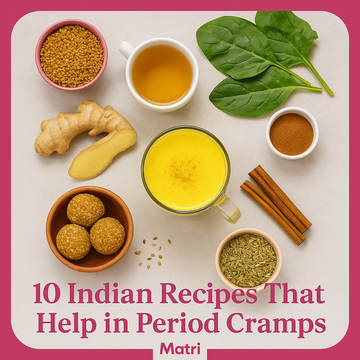Many people use wipes for daily hygiene, especially when water and soap aren't readily available. But when it comes to feminine care or adult cleansing, one common question arises—intimate wipes vs baby wipes, which one should you use?
At first glance, both products may seem similar. They're soft, moist, and easy to use. However, they are designed for very different purposes. This guide will help you understand the difference between baby wipes and feminine wipes, and whether one can substitute the other. We’ll also cover their ingredients, safety, pH levels, and skin sensitivity concerns.
What Are Intimate Wipes?
Intimate wipes are cleansing wipes specifically designed for the vaginal area. They are part of feminine care products and are formulated with the natural pH of the vulva in mind. These wipes are usually pH-balanced, alcohol-free, and contain gentle ingredients like aloe vera, chamomile, or calendula.
Their main role is to freshen and cleanse the intimate area without disrupting its natural moisture or protective barrier. They are especially useful during periods, after workouts, or while traveling. For more information click here.
What Are Baby Wipes?
Baby wipes are created for cleaning an infant's sensitive skin, mostly during diaper changes. They are soft, mildly scented (or unscented), and often enriched with moisturizing ingredients like lotion or oils. These wipes are also alcohol-free and hypoallergenic, making them safe for a baby’s delicate skin.
Because they are designed for babies, people often assume they are safe for adult use as well. While they are gentle, baby wipes are not made with adult intimate hygiene in mind.
Can You Use Baby Wipes as Feminine Wipes?
Technically, yes, but it is not recommended for regular use. While baby wipes for adults may seem harmless, they are not formulated to support the vaginal environment. The pH levels in wipes matter significantly when it comes to feminine hygiene.
The vulvar area typically has a pH between 3.8 and 4.5, which is more acidic than baby skin. Baby wipes usually aim for a neutral pH (around 5.5 to 7) to suit an infant’s needs. Using wipes with a mismatched pH regularly can disrupt the natural flora, leading to irritation, infections, or imbalance.
Feminine Care vs Infant Care Products
Feminine care vs infant care products differ not just in ingredients but in design intent. Feminine wipes are specifically tested and approved for vaginal health. They may contain natural antibacterials and calming agents tailored for adult use.
Baby wipes, on the other hand, are meant for cleaning dirt, stool, or urine without harming a baby’s skin. They may include gentle cleansers, but they’re not created to maintain vaginal pH or address adult hygiene challenges such as discharge, period care, or sweat.
For better management of menstrual discomfort, try using the Matri Period Pain Relief Device, which specifically targets cramps and offers soothing relief as part of your hygiene routine.
In Addition to the brand MyMatri focused on enhancing women's lives, with details on our latest product launches available in our recent press release.
Sensitive Skin Wipes Comparison
When comparing sensitive skin wipes, baby wipes are indeed very gentle. However, feminine wipes are made for a different kind of sensitivity. Vaginal tissue is more absorbent than other skin types, making the area more susceptible to imbalances caused by even the mildest ingredients.
Feminine wipes for sensitive skin are often dermatologically tested and gynaecologist-approved. They are fragrance-free or lightly scented and free from parabens, sulfates, and alcohol. Baby wipes might still have ingredients unsuitable for prolonged contact with adult intimate skin.
Importance of pH Levels in Wipes
pH levels in wipes play a vital role in maintaining vaginal health. The right pH supports healthy bacteria (like lactobacilli) and prevents the growth of harmful microbes. Using products with the wrong pH—like most baby wipes—can disturb this balance.
That’s why intimate wipes are always pH-balanced for the vaginal area, while baby wipes are not. Regular use of products with an incorrect pH may lead to irritation, itching, or even recurring infections.
Situational Use: When Each Is Appropriate
- Use intimate wipes when you’re on your period, after intimacy, post-exercise, or when water is not accessible.
-
Use baby wipes for quick skin cleaning like removing sweat from arms or legs, wiping your face during travel, or for babies, of course.
You can occasionally use baby wipes in emergency situations, but they should not replace feminine hygiene wipes in your daily intimate care routine.
Risks of Using the Wrong Wipes
Using baby wipes in place of intimate wipes occasionally is unlikely to cause harm. However, frequent use can lead to issues like irritation, dryness, or even bacterial imbalance. Since the vaginal area has specific needs, especially regarding pH and moisture, long-term misuse of general wipes can be counterproductive.
When choosing wipes, always read the label and choose ones that are designed for the specific body area you’re cleansing.
Conclusion
Though they look similar, there’s a big difference between intimate wipes vs baby wipes. Each is designed for a specific purpose, body part, and pH environment. While baby wipes are gentle and suitable for occasional adult use, they don’t meet the hygiene standards required for intimate care.
For better comfort, hygiene, and health, stick to feminine hygiene wipes that are tested and designed for vaginal use. Understanding what your skin needs will help you make safer, smarter choices about your daily hygiene routine.
FAQs
1. Can you use baby wipes as feminine wipes?
Yes, but only occasionally. Baby wipes are not pH-balanced for the vaginal area and may cause irritation if used frequently. For regular feminine care, it’s best to use wipes specifically designed for intimate hygiene.
2. What’s the main difference between baby wipes and intimate wipes?
The main difference is in formulation and purpose. Intimate wipes are pH-balanced and made for vaginal health, while baby wipes are created to clean infant skin and don’t support adult intimate hygiene needs.
3. Are baby wipes safe for adult use?
Yes, baby wipes are safe for general skin cleaning on adults. However, they are not ideal for vaginal care because they do not maintain the correct pH and may contain unsuitable ingredients for intimate areas.
4. Can baby wipes cause irritation in adults?
Yes. While rare, prolonged use of baby wipes in sensitive areas like the vagina can disrupt natural pH and lead to irritation, dryness, or infections. Always use feminine wipes for those areas when possible.
5. Are pH-balanced wipes necessary for intimate care?
Yes. Maintaining vaginal pH is crucial for preventing infections and irritation. pH-balanced wipes are designed to protect the natural acidity of the area, supporting overall intimate health and hygiene.
6. How often can I use intimate wipes?
You can use intimate wipes daily or as needed, especially during periods, after workouts, or while traveling. Just ensure you choose gentle, pH-balanced, and fragrance-free options suitable for regular use.
7. Can men use intimate wipes?
Yes, men can use intimate wipes, though there are also wipes specifically formulated for male hygiene. If using feminine wipes, men should choose unisex or gentle options to avoid unnecessary irritation.
8. Do baby wipes and intimate wipes use the same ingredients?
Not exactly. While both may be alcohol-free and gentle, intimate wipes often contain pH-balancing agents and botanicals tailored for adult hygiene. Baby wipes focus more on moisturization and cleaning residues from baby skin.
9. Can I use baby wipes on my face?
Yes, baby wipes are gentle enough for facial use in most cases. However, for acne-prone or sensitive skin, it's better to use facial wipes or dermatologically tested cleansing products.
10. What happens if I use the wrong type of wipe regularly?
Using baby wipes instead of intimate wipes regularly can lead to dryness, discomfort, and bacterial imbalance. It may also result in long-term irritation or recurring infections. It's best to use the right wipe for the right area.






